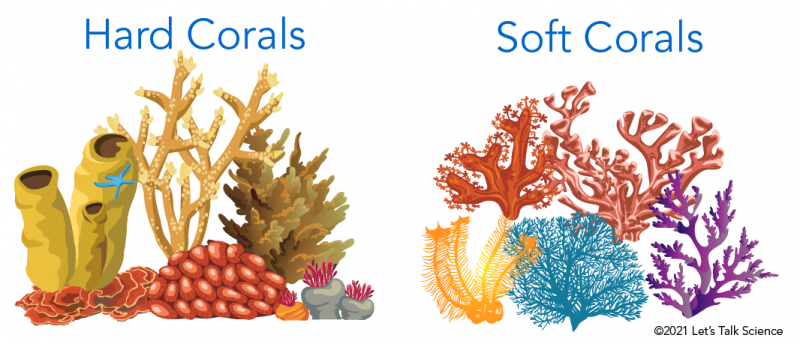Importance of Corals
Corals are remarkable marine invertebrates that form the backbone of vibrant underwater ecosystems. Belonging to the class Anthozoa, these fascinating creatures are renowned for their intricate calcium carbonate skeletons, which construct vast reef structures in tropical and subtropical oceans around the world.
Introduction:
Corals come in various shapes, sizes, and colors, ranging from massive reef-building species to delicate, branching forms. They play a crucial role in marine biodiversity, providing habitat and shelter for a myriad of marine organisms, including fish, mollusks, crustaceans, and more.
Despite their stationary nature, corals are dynamic organisms, engaging in intricate symbiotic relationships with microscopic algae called zooxanthellae. These algae reside within the tissues of corals, providing them with energy through photosynthesis while receiving nutrients and a protected environment in return.
Types of Corals
Corals can be broadly classified into two main types: hard corals and soft corals.
Hard Corals
Hard corals, also known as reef-building corals, construct intricate limestone skeletons that form the backbone of coral reefs. Examples include brain corals, staghorn corals, and pillar corals.
Soft Corals
Soft corals, unlike hard corals, lack a solid calcium carbonate skeleton. Instead, they have a flexible structure supported by tiny skeletal elements called sclerites. Examples include sea fans, sea whips, and mushroom corals.

Uses of Corals
Biodiversity Support
Coral reefs are renowned for being one of the most biodiverse ecosystems on the planet. They provide habitat and shelter for a vast array of marine species, ranging from colorful fish and crustaceans to microscopic invertebrates. Corals create complex habitats with numerous niches, fostering a rich diversity of marine life.
Fisheries Support
Coral reefs serve as vital breeding grounds, nurseries, and feeding areas for numerous commercially important fish species. These reefs support artisanal and commercial fisheries that are essential for food security and livelihoods in many coastal communities worldwide. Fishermen rely on coral reefs for a steady supply of fish, contributing significantly to local economies.
Coastal Protection
Coral reefs act as natural barriers, protecting coastlines from erosion, storm surges, and waves. By dissipating wave energy, corals reduce the impact of storms and prevent shoreline erosion, safeguarding coastal infrastructure, beaches, and communities. Healthy coral reefs provide crucial protection against the damaging effects of hurricanes, typhoons, and other extreme weather events.
Carbon Sink
Corals and the organisms living within them play a vital role in carbon sequestration. Through a process called calcification, corals absorb dissolved carbon dioxide from the seawater and incorporate it into their calcium carbonate skeletons. This not only helps mitigate ocean acidification but also removes carbon dioxide from the atmosphere, contributing to the global carbon cycle and helping to alleviate climate change.
Tourism and Recreation
Coral reefs are major attractions for tourism and recreation, drawing millions of visitors each year to coastal regions around the world. Tourists engage in activities such as diving, snorkeling, and recreational fishing to explore the vibrant underwater landscapes and observe the diverse marine life associated with coral reefs. Tourism revenue generated by coral reefs provides significant economic benefits to coastal communities, supporting businesses, jobs, and infrastructure development.
Medicinal Compounds
Corals produce a wide range of bioactive compounds with potential pharmaceutical applications. These compounds, extracted from both hard and soft corals, exhibit various medicinal properties, including anti-inflammatory, anti-cancer, and antibiotic effects. Researchers are exploring the therapeutic potential of coral-derived compounds for the treatment of diseases such as cancer, arthritis, bacterial infections, and more.
Benefits of Corals
Environmental Benefits
Corals play a vital role in maintaining the health and resilience of marine ecosystems. They support biodiversity, protect coastlines, and contribute to the global carbon cycle, making them indispensable components of healthy oceans.
Economic Benefits
The economic value of coral reefs extends beyond tourism and fisheries. Coral reefs support industries such as pharmaceuticals, biotechnology, and coastal real estate, contributing billions of dollars to the global economy each year.
Medical Benefits
Compounds derived from corals have potential medical applications, ranging from anti-inflammatory drugs to treatments for cancer and infectious diseases. Research into coral-derived pharmaceuticals continues to uncover new possibilities for improving human health.
Conclusion:
Corals are not only beautiful inhabitants of the ocean but also essential components of marine ecosystems with significant ecological, economic, and medical benefits. Protecting and preserving coral reefs is essential for the well-being of both marine life and human communities worldwide.
FAQs:
- Are all corals beneficial to the environment?
- While most corals provide important ecosystem services, certain species can become invasive or harmful under specific conditions.
- How do corals contribute to climate change mitigation?
- Corals absorb carbon dioxide from the atmosphere, helping to reduce greenhouse gas levels and mitigate the effects of climate change.
- Can coral-derived compounds be used in skincare products?
- Yes, certain compounds from corals, such as pseudopterosins, have anti-inflammatory properties and are used in skincare products for their healing effects.
- What are the threats to coral reefs?
- Coral reefs face numerous threats, including climate change, ocean acidification, pollution, overfishing, and destructive fishing practices.
- How can individuals help protect coral reefs?
- Individuals can contribute to coral reef conservation by reducing carbon emissions, using reef-safe sunscreen, supporting sustainable fishing practices, and participating in beach cleanups and conservation efforts.